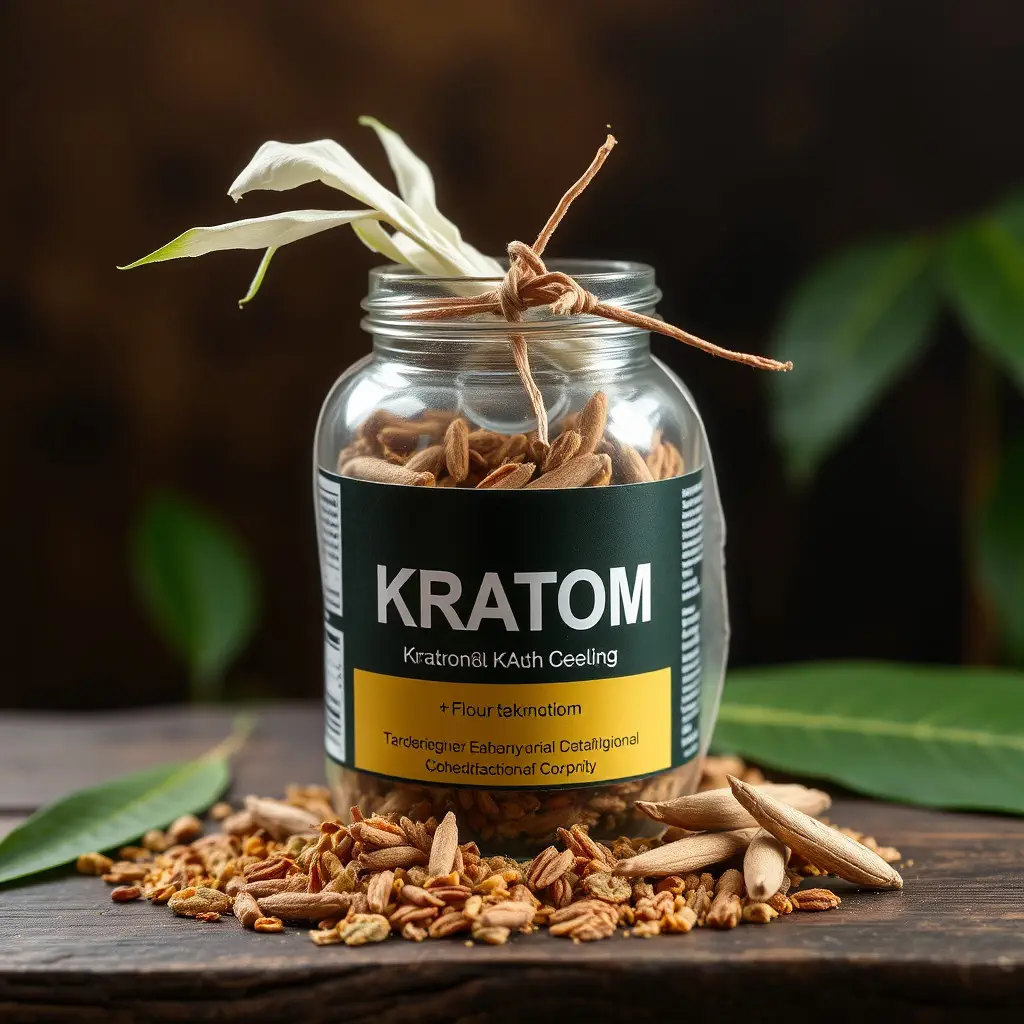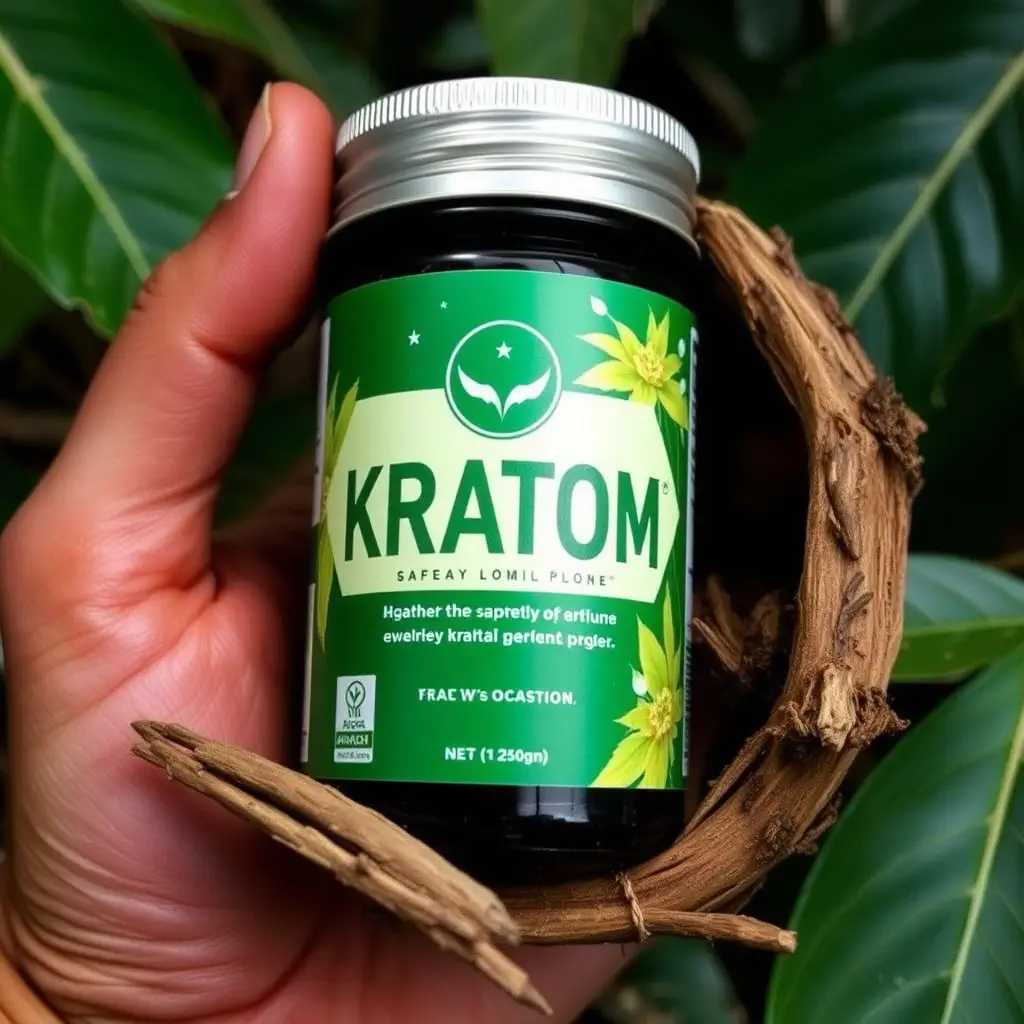Kratom, a plant-based substance from Southeast Asia with energizing properties due to its alkaloids mitragynine and 7-hydroxymitragynine, occupies a nuanced legal position in Utah as of the latest regulations. While not fully banned, it is subject to stringent state controls managed by the Utah Department of Agriculture and Food, which mandates strict purity standards for products sold within the state. The department's aim is to ensure consumer safety from potentially harmful substances while acknowledging interest in kratom's stimulating effects. In Utah, the use and sale of kratom are regulated with mandatory labeling and quality assurance measures, and consumers must stay informed about the latest legal status to comply with these regulations. It's important for individuals to monitor changes in the law and to source kratom from responsible vendors if they choose to use it, given its potential as a natural energy enhancer and the ongoing scientific scrutiny of its health implications and risk of abuse.
Exploring the intersection of natural wellness and energy management, our article delves into the multifaceted world of kratom. As a plant-based alternative for an energy boost, kratom has garnered attention and curiosity, particularly in Utah where its legality is a subject of discussion—is kratom illegal in Utah? We will navigate the legal landscape of kratom’s status within the state and uncover its potential as a natural energy enhancer. Join us as we explore the nuances of kratom’s role in energy management, while examining its legality and the science behind its properties.
- Understanding Kratom's Legal Status and Natural Energy-Boosting Properties in Utah
- Exploring the Potential of Kratom as a Natural Energy Enhancer
- The Role of Kratom in Energy Management and Its Legality in Utah
Understanding Kratom's Legal Status and Natural Energy-Boosting Properties in Utah

Kratom, a tropical evergreen tree native to Southeast Asia, has garnered attention for its potential natural energy-boosting properties. In Utah, the legal status of kratom has been a subject of debate and legislative action. As of the current understanding, kratom is not fully illegal across the state but is subject to regulatory restrictions. The Utah Department of Agriculture and Food oversees the sale of kratom, classifying it as an adulterated substance unless it meets certain purity standards, which effectively limits its availability. This regulation aims to protect consumers from potentially harmful products while acknowledging the interest in kratom’s effects, including its stimulating properties. The alkaloids found within kratom leaves, such as mitragynine and 7-hydroxymitragynine, are believed to be responsible for its energizing effects, which can provide a natural alternative to synthetic stimulants for individuals seeking an energy boost without the adverse side effects often associated with caffeine or other common energy-enhancing substances. Users in Utah must navigate this complex regulatory environment to legally access kratom products that are deemed safe and compliant with state regulations. It is important for consumers to stay informed about the evolving legal landscape surrounding kratom in Utah to ensure they are purchasing products that are both effective as an energy booster and legally permissible.
Exploring the Potential of Kratom as a Natural Energy Enhancer

Kratom, derived from the leaves of the Mitragyna speciosa tree native to Southeast Asia, has garnered attention as a potential natural energy enhancer. Its alkaloid profile, particularly mitragynine and 7-hydroxymitragynine, is believed to interact with the body’s opioid receptors, leading to a range of effects including increased alertness and energy levels. While the popularity of kratom as an alternative to conventional stimulants is on the rise, it’s important to note the legal status of kratom varies by region. In Utah, for instance, the legality of kratom is a subject of ongoing debate and regulation. As of the knowledge cutoff in 2023, kratom is legal in Utah but subject to strict controls and vendor regulations aimed at ensuring consumer safety. Users in Utah must be aware of these regulations when considering the use of kratom as an energy booster.
The potential of kratom as a natural energy enhancer is supported by anecdotal and some scientific evidence, suggesting that it may offer a viable alternative to synthetic stimulants for individuals seeking a natural pick-me-up. However, it’s crucial for potential users to approach the use of kratom with caution. The substance’s effects can be highly individualized, and its interaction with other substances or medications can be unpredictable. Moreover, the long-term effects of kratom consumption are not fully understood, and there are concerns regarding its potential for abuse and dependency. As such, anyone considering kratom as an energy booster should first consult with a healthcare professional to evaluate the risks and benefits in light of their personal health status and circumstances.
The Role of Kratom in Energy Management and Its Legality in Utah

Kratom, a tropical evergreen tree native to Southeast Asia, has garnered attention for its potential role in energy management. The leaves of kratom contain alkaloids, such as mitragynine and 7-hydroxymitragynine, which can have stimulant effects, helping users feel more energized and alert. When consumed in lower doses, kratom can act as a gentle energy booster, promoting vigor and mental clarity without the jittery side effects often associated with caffeinated beverages or synthetic stimulants. This makes it an appealing alternative for individuals seeking natural ways to enhance their energy levels.
However, the legal status of kratom varies across different states within the United States. In Utah, the legality of kratom is a subject of ongoing discussion and legislation. As of the knowledge cutoff date, kratom is not explicitly illegal in Utah, but its sale and possession are governed by specific regulations. The Utah Department of Agriculture and Food regulates kratom products as dietary supplements, which means vendors must adhere to strict labeling and quality control measures. It’s crucial for consumers to stay informed about the latest legal developments regarding kratom in their state, as laws can change. Those interested in using kratom for energy management should be aware of the local regulations and ensure that they are purchasing products from reputable sources that comply with these regulations.
In conclusion, the natural energy-boosting properties of kratom have sparked interest among individuals in Utah seeking alternative methods to enhance their vitality. As discussed, kratom’s status as a legal supplement in Utah must be navigated with caution due to its regulatory fluctuations. It is imperative for potential users to stay informed on the current legalities surrounding kratom within the state. While exploring kratom’s role in energy management provides insights into its potential benefits, it is crucial to approach its use responsibly and within the bounds of the law. Those interested in incorporating kratom into their routine should first consult with healthcare professionals to understand both the possibilities and limitations of this natural compound. Understanding the nuances of kratom’s legality in Utah and its effects on energy levels can help individuals make informed decisions about whether it is a suitable option for them.






